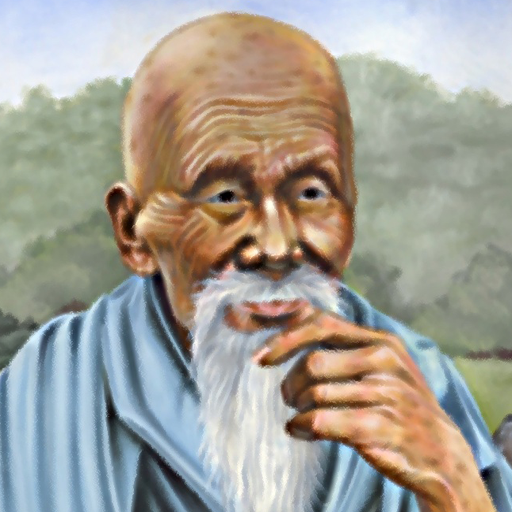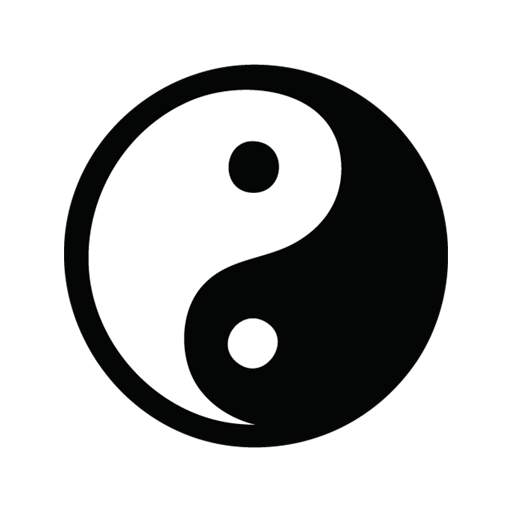

Taoism, Lao Tzu & Tao Te Ching
도서/참고자료 | H Mobile
5억명 이상의 게이머가 신뢰하는 안드로이드 게임 플랫폼 BlueStacks으로 PC에서 플레이하세요.
Play Taoism, Lao Tzu & Tao Te Ching on PC
Looking for Lao Tzu quotes? Want to know more about Taoism and Tao Te Ching (Dao De Jing in Hanyu pinyin or 道德經 in Chinese)? Then this is the app for you!
Laozi (Chinese: 老子; pinyin: Lǎozǐ; Wade–Giles: Lao Tzu; also romanized as Lao Tse, Lao Tu, Lao-Tsu, Laotze, Laosi, Laocius, and other variations) was a mystic philosopher of ancient China, best known as the author of the Tao Te Ching (often simply referred to as Laozi). His association with the Tao Te Ching has led him to be traditionally considered the founder of Taoism (pronounced as "Daoism"). He is also revered as a deity in most religious forms of Taoist philosophy, which often refers to Laozi as Taishang Laojun, or "One of the Three Pure Ones".
Laozi is an honorific title. Lao (老) means "venerable" or "old", such as modern Mandarin laoshi (老师), "teacher". Zi (子), Wade-Giles transliteration tzu, in this context is typically translated "master". Zi was used in ancient China as an honorific suffix, indicating "Master", or "Sir". In popular biographies, Laozi's given name was Er, his surname was Li (forming Li Er, 李耳) and his courtesy name was Boyang. Dan is a posthumous name given to Laozi, and he is sometimes referred to as Li Dan (李聃).
According to Chinese traditions, Laozi lived in the 6th century BCE. Historians variously contend that Laozi is a synthesis of multiple historical figures, that he is a mythical figure, or that he actually lived in the 5th-4th century BCE, concurrent with the Hundred Schools of Thought and Warring States Period.
A central figure in Chinese culture, both nobility and common people claim Laozi in their lineage. He was honored as an ancestor of the Tang imperial family, and was granted the title Taishang xuanyuan huangdi, meaning "Supreme Mysterious and Primordial Emperor". Xuanyuan and Huangdi are also, respectively, the personal and proper names of the Yellow Emperor. Throughout history, Laozi's work has been embraced by various anti-authoritarian movements.
This app contains all of Lao Tzu's quotes, wiki on Taoism and Tao Te Ching (Dao De Ching or 道德經) text translated and more will be added when found.
Features of app
-Browse quotes by random or by sequential
-Easy add/remove to favorites
-One click share with facebook, twitter, whatsapp, messaging...(basically all the share apps u have on ur phone)
-Customizable settings for user, including font size, font type, background
Download this app today and enjoy the inspiration of Lao Tzu on your phone!
Laozi (Chinese: 老子; pinyin: Lǎozǐ; Wade–Giles: Lao Tzu; also romanized as Lao Tse, Lao Tu, Lao-Tsu, Laotze, Laosi, Laocius, and other variations) was a mystic philosopher of ancient China, best known as the author of the Tao Te Ching (often simply referred to as Laozi). His association with the Tao Te Ching has led him to be traditionally considered the founder of Taoism (pronounced as "Daoism"). He is also revered as a deity in most religious forms of Taoist philosophy, which often refers to Laozi as Taishang Laojun, or "One of the Three Pure Ones".
Laozi is an honorific title. Lao (老) means "venerable" or "old", such as modern Mandarin laoshi (老师), "teacher". Zi (子), Wade-Giles transliteration tzu, in this context is typically translated "master". Zi was used in ancient China as an honorific suffix, indicating "Master", or "Sir". In popular biographies, Laozi's given name was Er, his surname was Li (forming Li Er, 李耳) and his courtesy name was Boyang. Dan is a posthumous name given to Laozi, and he is sometimes referred to as Li Dan (李聃).
According to Chinese traditions, Laozi lived in the 6th century BCE. Historians variously contend that Laozi is a synthesis of multiple historical figures, that he is a mythical figure, or that he actually lived in the 5th-4th century BCE, concurrent with the Hundred Schools of Thought and Warring States Period.
A central figure in Chinese culture, both nobility and common people claim Laozi in their lineage. He was honored as an ancestor of the Tang imperial family, and was granted the title Taishang xuanyuan huangdi, meaning "Supreme Mysterious and Primordial Emperor". Xuanyuan and Huangdi are also, respectively, the personal and proper names of the Yellow Emperor. Throughout history, Laozi's work has been embraced by various anti-authoritarian movements.
This app contains all of Lao Tzu's quotes, wiki on Taoism and Tao Te Ching (Dao De Ching or 道德經) text translated and more will be added when found.
Features of app
-Browse quotes by random or by sequential
-Easy add/remove to favorites
-One click share with facebook, twitter, whatsapp, messaging...(basically all the share apps u have on ur phone)
-Customizable settings for user, including font size, font type, background
Download this app today and enjoy the inspiration of Lao Tzu on your phone!
PC에서 Taoism, Lao Tzu & Tao Te Ching 플레이해보세요.
-
BlueStacks 다운로드하고 설치
-
Google Play 스토어에 로그인 하기(나중에 진행가능)
-
오른쪽 상단 코너에 Taoism, Lao Tzu & Tao Te Ching 검색
-
검색 결과 중 Taoism, Lao Tzu & Tao Te Ching 선택하여 설치
-
구글 로그인 진행(만약 2단계를 지나갔을 경우) 후 Taoism, Lao Tzu & Tao Te Ching 설치
-
메인 홈화면에서 Taoism, Lao Tzu & Tao Te Ching 선택하여 실행




